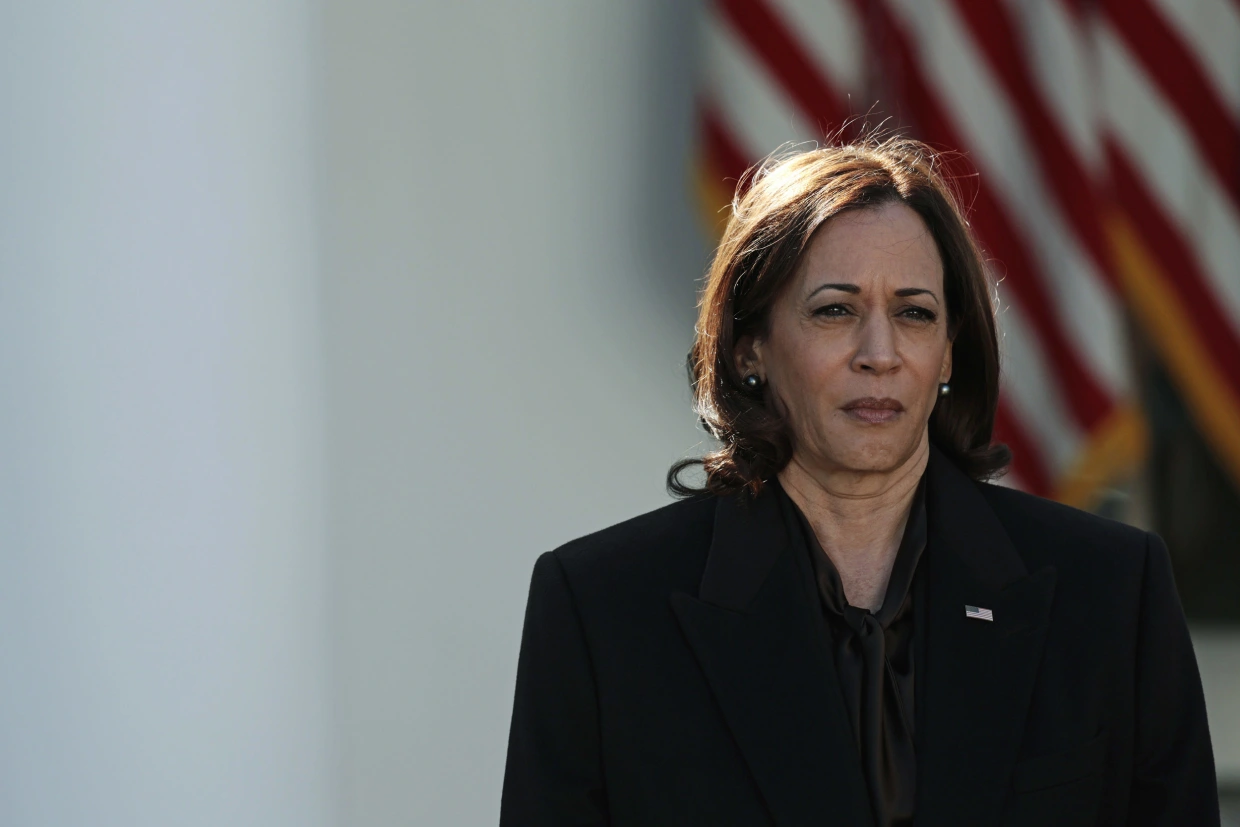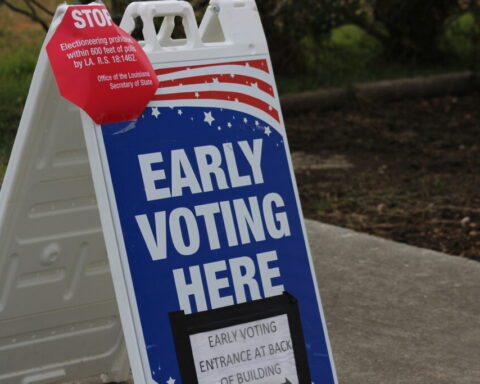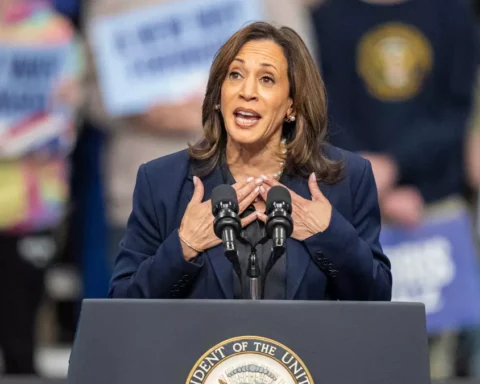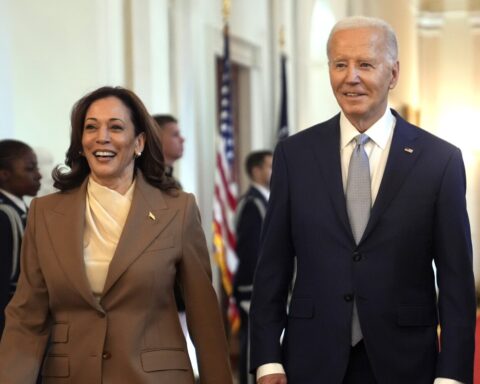In December, Vice President Kamala Harris hosted the first federal Maternal Health Day of Action at the White House, where she issued a call to improve health outcomes for parents and infants in the U.S. Months later, she is still using the vice presidential bully pulpit to push for policy and structural changes aimed at saving lives.
“In our nation, we are looking at the fact that more women are facing death because of childbirth than in any other developed nation,” Harris told journalists during a call on Thursday during Black Maternal Health Week. “We are looking at the likelihood that Black women are three times more likely to die in connection with childbirth, that Native women are twice as likely to die, that rural women are one and a half times more likely to die.”
Black Maternal Health Week is an education and advocacy campaign founded and led by the Black Mamas Matter Alliance that is observed each April. The White House officially recognized the designated week in 2021, and President Joe Biden issued a proclamation for it this year.
In 2018, then-Senator Harris introduced the first congressional resolution recognizing Black Maternal Health Week, along with Rep. Alma Adams, D-N.C. In 2019, Adams co-founded the Black Maternal Health Caucus with Rep. Lauren Underwood, D-Ill., a nurse who recently said the issue should be elevated “as a national priority.”
“The maternal health crisis demands urgent attention and serious action to save lives and advance birth equity across the country,” Underwood said.
This week, the caucus co-chairs and Sen. Cory Booker, D-N.J., introduced companion resolutions in Congress recognizing Black Maternal Health Week. The goal, the lawmakers noted in a joint statement, is “to bring national attention to the maternal health crisis in the United States and the urgent importance of reducing maternal mortality and morbidity among Black women and birthing persons.”
The resolution, which more than 100 members of Congress and organizations such as the March of Dimes have supported, underscores the disproportionate health complications Black women experience during pregnancy. Regardless of income, this demographic is three time more likely to face maternal morbidities than their white counterparts, something the lawmakers attributed to “structural racism and gender oppression in maternal health care experiences.”
“This week we are lifting up the voices of Black women who are doing the critical work of eliminating maternal health disparities and creating a world where maternal justice and equality are a reality,” said Adams, an educator, mother and grandmother.
The pandemic has further exacerbated these inequities. Data from the Centers for Disease Control and Prevention indicates that the maternal mortality rate for Black women has increased by 26 percent since the pandemic began.
To tackle such challenges, the caucus in 2020 introduced the Black Maternal Health Momnibus Act, a package of 12 bills to comprehensively address existing gaps in policy solutions to the maternal health crisis.
Last year, one of those bills became law: The Protecting Moms Who Served Act, which will codify and strengthen high-quality maternal health care and support for veterans. Additionally, it will commission the first comprehensive study of America’s maternal health crisis among female veterans, with a particular emphasis on racial and ethnic disparities.
Last month, the Maternal Health Quality Improvement Act, sponsored by Rep. Robin Kelly, D-Ill., was signed into law as part of the FY22 Appropriations package. The measure authorizes funding to address biases in health care services that affect care for racial and ethnic groups. Additionally, the bill would provide funding to establish obstetric networks to improve birth outcomes and reduce maternal morbidity in rural areas.
“Passing this bill into law is a leap forward, but I am still fighting to pass other critical maternal health legislation, such as my MOMMAs Act, to require that Medicaid cover postpartum care for one full year after delivery in every single state,” Kelly said.
On Monday, April 18, she will host “The Future of Black Maternal Health,” a virtual event, and will be joined by Chiquita Brooks-LaSure, the administrator for Centers for Medicare & Medicaid Services and members of the Black Women’s Congressional Alliance.
“We have made progress during the past two years in advancing policies to save the lives of Black mommas, but there is still a long way to go,” said Kelly. “I am looking forward to talking about what’s next for maternal health policy.”
On Friday, Booker along with Reps. Adams, Underwood, Gwen Moore, D-Wis., and Ayanna Pressley, D-Mass., introduced the Mamas First Act to expand Medicaid to include doula, midwifery and tribal midwifery care.
Beyond the federal level, state lawmakers are tackling the maternal health crisis, too. For Tennessee state Sen. London Lamar, the matter is deeply personal.
“I suffered a late-term pregnancy loss due to an undiagnosed complication. I know what it feels like to not get the right care,” she told NBC News via email. “We need to do everything we can to make pregnancy and childbearing safer for Black women.” In March, the Tennessee Senate unanimously passed her first bill, called TennCare, which directs health officials to study doula programs to improve health outcomes for mothers and babies.
Harris said investments in the latest federal budget proposal include, for example, about half a billion dollars to reduce maternal mortality and morbidity rates. There will also be proposed funding toward the implementation of implicit bias training for health care providers and more.
“And the more we can elevate this issue, I think the more we will accomplish that, which is to let women know that when it comes to their reproductive health, when it comes to their pregnancy and anything that they are experiencing in connection with that, they do not have to suffer,” Harris said. “And they certainly must not silently suffer, because there is a whole system that has been designed to help them. And so, let’s hold the system accountable to do its job.”





